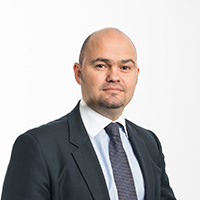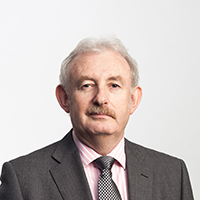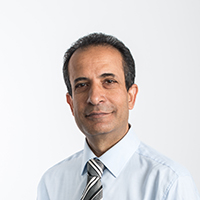Working alongside leading experts, you will research topics at the cutting edge of electrical and electronic engineering. Develop industry-applicable expertise and benefit from state-of-the-art facilities.
Key information
| Starting date | Deadline for application |
|---|---|
Duration
Electrical and Electronic Engineering Postgraduate research degrees PhD/MPhil course Overview
Our Department of Engineering has world-leading expertise in photonics and sensors, robotics and control, and biomedical engineering.
You’ll have access to our extensive facilities in the School of Science & Technology. This includes our new state-of-the-art robotics lab, opening in early 2020.
Recent PhD candidates have studied and gone on to work in high-demand areas such as:
- cyber security, cryptography, blockchain and BitCoin
- the development and application of biomedical devices in industry and hospital settings
- sensing technology for major infrastructure projects, including tachographs for the rail industry, and the developing area of fibre optic sensors.
With a desirable combination of cutting-edge academic knowledge and practical industrial applications, our PhD graduates are in-demand. Quickly finding work in industry, health, infrastructure and government.
Structure
The research for Electrical and Electronic Engineering is organised around four Research Centres. Sensors and Instrumentation, Systems and Control, Photonics and Instrumentation and Biomedical Engineering.
Research Areas
The Sensors and Instrumentation Centre has an established international reputation. Covering the areas of measurement and instrumentation, sensor development, optical systems and photonics, computer vision, medical imaging and biomedical Focussing engineering.
The work builds on advanced experimental and theoretical developments to meet current sensing challenges from industry and clinical practice.
The Centre comprises research activity in the areas of sensing and photonics and biomedical engineering.
It has particular expertise in:
- Novel optical fibre-based sensor design
- Fabrication and implementation
- Biomedical diagnostics
- Medical imaging and pattern recognition
- Photonics modelling
- Microelectronics
- Instrumentation and signal processing.
The Systems and Control Centre activities address the challenge of complexity in engineering and general processes. They have extended the control and systems approaches to challenging problems in the Design, Operations, Risk and Management of Industrial Processes. As well as new fields of applications such as Energy, Environment, and Security.
Its central goal is the development of methodologies that enable the management of complexity in engineering processes.
The Photonics and Instrumentation Centre is an internationally-leading ‘flagship’ Research Centre, recognised for its contribution and impact to these fields. The centre's scope ranges from basic scientific research to applied research.
The centre's ultimate goal is to address challenges in science and engineering and environmental processes. This is done through innovation in sensing technologies and in photonics systems and devices.
The Centre is engaged in a breadth of research activity. Covering the areas of sensing, photonics and telecommunications and drawing strength from synergies across these areas.
The Biomedical Engineering Centre was founded in the mid-90s with the aim of pursuing research in the emerging field of Biomedical Engineering. A discipline that applies the principles of physics and engineering to the complex medical devices used in the diagnosis and treatment of the sick and injured.
The Centre occupies state of the art laboratories and has built a global reputation. Offering world-class facilities and expertise to researchers and collaborators including scientists, engineers and clinicians from around the world.
Applications are supported by basic research in Mathematical Systems and Control Theory, Optimisation, Linear Algebra and Computations.
For full details about the City PhD programme structure, please see the Guide for Research Students.
Requirements
Entry requirements
A good first class honours degree in Electrical, Electronic Engineering, Physics or Mathematics from a UK university or a recognised equivalent from an overseas institution. Most areas also require an appropriate Masters qualification, or equivalent degree.
If your undergraduate degree is not of a first class pass or equivalent an MSc with Distinction is required.
English requirements
For applicants whose first language is not English, proof of English language proficiency will be required. We require a minimum IELTS score of 6.5 with a minimum of 6.0 in each of the four components.
Please note that the UK Border Agency currently requires us to confirm that you are at level B2 or above in all components of English before issuing visa documents.
For more information see our English language proficiency requirements at City.
Visa requirements
If you are not from the European Economic Area / Switzerland and you are coming to study in the UK, you may need to apply for a visa or entry clearance to come to the UK to study.
The way that you apply may vary depending on the length of your course. There are different rules for:
- Students on courses of more than six months
- Students on courses of less than six months
- Students on a pre-sessional English language course.
For more information see our main Visa page.
Some applicants may require an ATAS (Academic Technology Approval Scheme) certificate before joining a course. ATAS is a certificate issued by the Foreign and Commonwealth Office (FCO), which gives you security clearance to study certain postgraduate programmes at City, University of London.
Non-EEA students who choose to study certain subjects at MSc or MEng or PhD level in the UK have to apply for and receive clearance under the ATAS scheme regardless of if they are required to apply for a Student visa or not.
For more information see Applying for an Academic Technology Approval Scheme (ATAS) certificate.
Fees and funding
Full-time Home/UK:£6,360 per year
Part-time Home/UK:£3,180 per year
Full-time International:£19,100 per year
Part-time International:£9,550 per year
External candidate study of this course costs £2,120 (UK) or £6,630 (Overseas/EU) for full time study and £1,060 (UK) or £3,315 (Overseas/EU) for part-time study.
Fees for doctoral candidates are charged annually and cover registration, supervision and examination.
Fees are subject to review each year and may vary during your period of registration. Where applicable, fees for City's programmes will be subject to inflationary increases in each academic year of study commencing in September. Our policy for these increases is set out in our terms and conditions of study.
Support for PhD study
Prospective students are encouraged to explore doctoral Grants and funding opportunities such as:
- School of Science & Technology Doctoral Studentships
- Research Council studentship awards, if available.
Our bursaries are non-repayable sums of money granted by the University, usually based on need.
Our loans are repayable sums of money granted by the University or other body.
Our scholarships are when the University pays towards your Study fees. You may also be eligible for further funding.
Postgraduate Doctoral Loans
The Government has introduced a new Postgraduate Doctoral Loans scheme which can provide a loan of up to £25,000.
This will be over three years to support study for a doctoral degree.
A Postgraduate Doctoral Loan can help with course fees and living costs while you study. It can be used alongside any other forms of support you may be able to receive.
For more information, please see our Postgraduate Doctoral Loans page.
Additional expenses
Some of our degrees may involve additional expenses which are not covered by your tuition fees. Find out more about additional expenses.
Academic support
City has a well-established structure and processes to support your research.
Research Students are assigned to a lead and secondary supervisor within a Research Group. Then assigned to the Research Centre of the Primary Supervisor.
The Research Centre supports the PhD candidate with training and development.
Students are encouraged to widen their horizons by attending in-house seminars and participate in relevant courses from the MSc programmes. These will be recommended by their supervisor.
Participation in theme-oriented study groups and presentation of their own work in a seminar after the first year is required. Students are also strongly encouraged to present their work regularly.
After the first year, the Department offers the opportunity for PhD students to gain teaching experience and improve their communication skills. This achieved by tutoring undergraduate students.
Assignments depend on progression and are co-ordinated by the Head of Department in liaison with supervisors.
Research Environment
City provides:
- broad training on research methods
- communication and presentation skills
- an introduction to the research degree framework
- online research skills support
- two researcher development days per year
- an annual research symposium.
Further support for the development of generic research skills and personal transferable skills is provided by the City Doctoral College.
Student progression is closely monitored by the Doctoral College's senior tutor for research. Done through annual progress reports and by means of a recently introduced software system.
The system involves PhD students in the management of their own research projects with a flexible approach according to individual student needs.
How to apply
We accept applications on an ongoing basis for entry in October, January and April. Please see the requirements section above for eligibility criteria.
If you are applying for a specific scholarship or studentship, please make this clear within your application. Your scholarship/studentship will then be considered alongside your application. Please note, individual scholarships and studentships may have specific application deadlines.
It is essential that you contact a member of staff in the department you are interested in, to discuss your ideas for research (research proposal). Unfortunately, we will not be able to consider your application without this pre-requisite.
Details of relevant academic staff can be found here.
You are advised to submit your application at least 12 weeks before your proposed start date in order for us to consider and process your application. Once you have identified a supervisor who will accept to guide through your research, please submit an application online.
Supporting documents
To apply online, an applicant will need to submit the following supporting documents:
- Research proposal. The Research Proposal should be a maximum of 3 sides A4. See guidance on writing your research proposal.
- Copies of degree certificates and transcripts – original will be requested before an offer is made;
- Official work e-mail addresses (not private ones) for two referees (one of which must be an academic);
- Proof of English language proficiency (if applicable).
- Evidence of sponsorship (if applicable).
Apply now
Electrical and Electronic Engineering
-
Select one of the available starting dates to start your application.
-
Select one of the available starting dates to start your application.
Electronic Engineering
-
Select one of the available starting dates to start your application.
-
Select one of the available starting dates to start your application.
Apply now
Electrical and Electronic Engineering
Full-time
Part-time
Electronic Engineering
Full-time
Part-time
For further application enquiries please contact our PGR enquiries team.
Example PhD projects from the Department of Engineering
Find a supervisor
See our full list of academic staff and potential supervisors in Department of Engineering.

Professor Panicos Kyriacou
Associate Dean (Research Excellence)
Department of Engineering

Professor Nabil Aouf
Professor of Robotics and Autonomous Systems
Department of Engineering

Professor Kenneth Grattan OBE FREng
Royal Academy of Engineering - George Daniels Professor of Scientific Instrumentation
Department of Engineering

Professor Abdulnaser Sayma
Professor of Energy Engineering, Director of the Thermo-Fluid Research Centre
Department of Engineering
